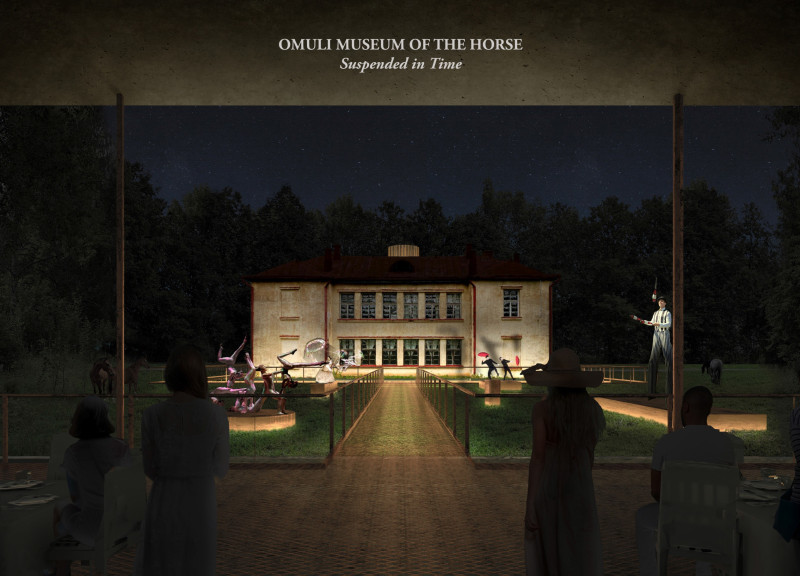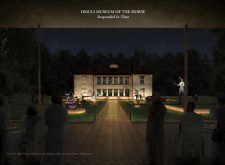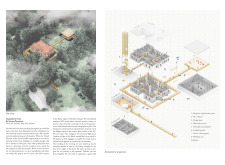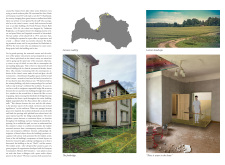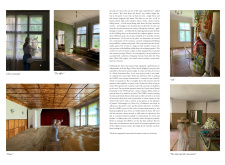5 key facts about this project
The Omuli Museum of the Horse, located in Latvia, serves as a contemporary cultural repository dedicated to the equestrian history of the region. Occupying a repurposed educational building initially constructed in the mid-20th century, this architectural project integrates modern design elements with historical preservation practices. The museum not only aims to showcase the cultural significance of horses in Latvian society but also fosters an interactive environment that engages visitors through various artistic and educational programs.
Architectural Design Principles
One of the project’s notable features is its emphasis on creating fluid transitions between indoor and outdoor spaces. The inclusion of a footbridge connecting the main building to outdoor exhibition areas provides both functional access and a symbolic link between different aspects of the museum. This design approach facilitates an immersive visitor experience, as the outdoor sculpture garden complements the indoor galleries and exhibition spaces.
The museum’s main structure highlights a modern aesthetic characterized by clean lines and open spaces. The use of large glass windows allows ample natural light to enter, enhancing the visibility of exhibits while establishing a direct relationship with the surroundings. This transparency reflects the museum’s intent to invite the community and nature into the experience of viewing art.
Unique Design Approaches
The Omuli Museum of the Horse stands out due to its incorporation of interactive elements into its design. Various spaces within the museum are dedicated to performance art and workshops, encouraging both local and international artists to collaborate and engage with the community. This focus on artistic residency programs provides a platform for experimentation, enabling new works that resonate with local traditions.
Additionally, the museum's integration with the surrounding environment exemplifies a connection to local culture. The design includes a sculpture garden that showcases site-specific installations, enhancing the visitor experience by providing a space for contemplation and interaction with the artworks. This feature distinguishes the museum from typical cultural institutions that may rely solely on traditional gallery spaces.
The material palette selects elements such as wood, glass, and steel, aligning with sustainable design practices. The choice of these materials supports not only the structural integrity of the project but also promotes aesthetic continuity with the natural surroundings. Wood adds warmth to the interior spaces, while glass facilitates an openness that invites the outside in.
The Omuli Museum of the Horse emerges as a relevant addition within the cultural landscape of Latvia, and its architectural design encapsulates a modern interpretation of heritage. For those interested in more detailed aspects of this project, including architectural plans, sections, and design considerations, further exploration of the project presentation is encouraged to gain deeper insights into its architectural ideas.


